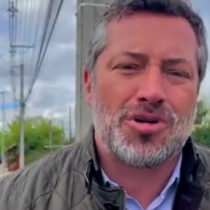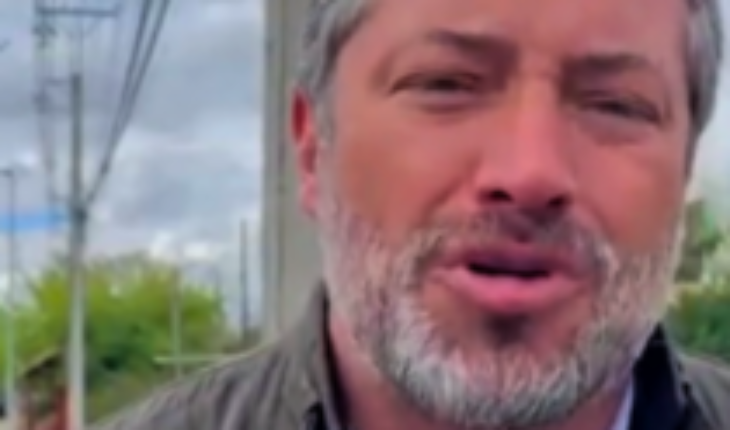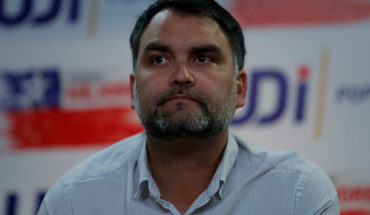
Before analyzing the consequences that the debate has provoked around the fourth withdrawal of 10% in the performance of presidential candidacies, where the most outstanding case is represented by Sebastián Sichel, it is convenient to make a recapitulation of the events that would explain why the approval of the withdrawals in Congress ends up imposing itself as forcefully in the political field as the law of gravity is it imposes on bodies in physical space. Beyond all demagoguery, and even the own will of the political actors.
It is well worth placing as a starting point July 24, 2016, the day on which one of the most massive marches since the irruption of social movements in 2011 gathered. This new wave of mobilizations would raise a brief and devastating slogan: “No + AFP”.
With this, social indignation executed a shift from criticism of profit in the educational system to a frontal attack against one of the pillars of the neoliberal model established in Chile under a dictatorial regime: the AFP system. Like any phenomenon anchored to structural matrices, the social repudiation against the AFP had been “simmering” for more than three decades. All good, until a first batch of pensioners began to emerge who mostly received income that bordered on the poverty line.
It was in November 1980 when decree-laws 3,500 and 3,501 were published in the Official Gazette that established the individual capitalization model designed by the Minister of Labor and Social Welfare of that time, José Piñera, brother of the current president of the Republic, Sebastián Piñera. The “negative externalities” that the model provides to our “polarized” society required a time of maturation.
Although the political action of the Piñera Echeñique brothers was carried out at different times in our history, both have contributed with more than one “grain of sand” to unleash the current crisis. José, modeling a social security and labor system that has functioned as a fundamental pillar for the use of workers’ funds in the financial market rather than as a social security system. Sebastian, unleashing the furies of the state of exception when his own inability to grant governability was revealed by social protest. José and Sebastián, an explosive combination that also blew up their own political sector, the right.
The outburst of course increased the illegitimacy of the AFP pension system. Not for nothing the first point of the concessions that the government of Sebastián Piñera gave in to the advance of the street agitation referred precisely to the issue of pensions. The “New Social Agenda” was announced on Tuesday, October 22, a day after his indelible and warlike intervention: “we are at War.”
On the other hand, the constituent path triggered by social exposure would not immediately solve the problem of illegitimacy around the pension system.
When the pandemic arrived in Chile in March 2020, the political terrain was perfectly fertile for the AFP model to begin its painful process of agony and death. But something else was missing. The executive’s response. Expert with the stick (applying a state of emergency and curfew that lasted 560 days). Austere with carrot.
After the first lockdowns in the cities, the precariousness that underlies the world of work in Chile, especially the informal one, appeared on the surface of the media. Also, a scourge that we had tried to overcome: hunger. The executive responded with a package of measures, being the processing in Congress of an Emergency Family Income of 65 thousand pesos that benefited almost 5 million people one of its star products. The approval of the benefit was celebrated as a victory by the ministers of Finance at that time, Ignacio Briones, and of Social Development, today presidential candidate of the sector, Sebastián Sichel.
While both ministers uncorked the concoctions to celebrate the IFE in May 2020, a group of parliamentarians began to raise the need to carry out a first withdrawal of 10% of the AFPs in order to alleviate the deficit in the income of families as a result of the pandemic. A perfect equation to gain popularity, likes and votes.
We already know the outcome of the story. The first withdrawal was approved in July 2020. The second in December of that same year. The third in April 2021. The set of these three withdrawsIt is equivalent to US $ 50 billion, about 25% of the total accumulated in the system (a fourth withdrawal would increase the figure by about US $ 20 billion more).
Beyond the figures, and how this flow of income has allowed to dynamize the circuits of the neoliberal economy, in the registration of contingent policy the withdrawal that caused the greatest repercussions was undoubtedly the third (April of this year). On that occasion, the rebellion of the pro-government parliamentarians against the guidelines of their own government and, subsequently, the decision of the executive to go to the Constitutional Court to stop the third withdrawal days before the most important election since the plebiscite of 1988 was a catastrophic mistake, which surely the right will regret for several more years.
Effects on the presidential race
It is all this trajectory and previous context that makes it inevitable that the presidential candidacies do not assume the implications of the processing in Congress of the fourth withdrawal, as well as the process of agony experienced by the AFP system.
Of course, not all competing candidates assume this discussion with the same centrality. What makes the difference lies in those candidacies that are supported by political forces that have a presence in Congress, and that therefore could influence the legislative process, and those that do not.
Indeed, the candidacies with a relevant parliamentary base are only three: Gabriel Boric – Apruebo Dignidad, Yasna Provoste – New Social Pact, and Sebastián Sichel – Chile Podemos +.
Gabriel Boric, who had been opposed in the first instance to the approval of a fourth withdrawal, subsequently assumed a pragmatic position: not to collide with the overwhelming progress of the processing of the fourth withdrawal or with the parliamentarians of the Approve Dignity caucus who were already determined to vote in favor of the initiative.
To do this, he changed his position, went on to support the measure, and tried to introduce some indications within the Constitution commission in order to mitigate the negative effects that the fourth withdrawal could have on the economy and its inflationary implications. The tactic did not bear the expected fruits since it failed to align the entire caucus behind the proposal, nor were the indications approved in the Constitution commission, being branded by the rest of the political spectrum as “fine print”. Beyond the setback, the processing of the fourth withdrawal has not produced many problems for Boric. Especially if you compare his situation with that of his main contender, who begins to lose ground, Sebastián Sichel.
It is the candidate of the right who has had the most problems during the processing process. Sichel took an early position against the fourth withdrawal. His first mistake was to try to discipline the parliamentarians of Chile Vamos so that they did not vote in favor: “I will be looking at those who support the fourth withdrawal for when they later ask for support back in the campaign,” he said on one occasion, generating unnecessary frictions that increased their decibels when the House finally approved on Tuesday, November 28, the proposal with 18 official votes, most of them come from RN. The leadership of Sebastián Sichel was again questioned, after the television debate that showed José Antonio Kast inflicting a hemorrhage from the right that some in the UDI are already beginning to sniff.
However, what would most harm Sichel in these circumstances would be the “moral” variant that he initially tried to dodge, in addition to the persistent sequence of errors that shows that his campaign is not going through a good time. Thus, when the candidate was asked by the press if he had taken out any of the withdrawals, the candidate refused to respond, calling the discussion a “false moral debate.” The response to the site took three days to arrive. Through a video uploaded to social networks, the candidate acknowledged having withdrawn the first 10% to enter his PAV.
In this past, not only the leadership of Sebastián Sichel within his coalition has been questioned. Also its credibility at the social level. Therefore, the only possible way out of the quagmire was to propose an unexpected counteroffensive: in the case of approving the fourth withdrawal in Congress, propose to withdraw 100% of the funds (60% remaining) with the aim of preventing them from being “expropriated”. The mayor of Providencia Evelyn Matthei was the one who took the idea of the presidency to an extreme: “Effectively what they must do is that everyone withdraws 100% because they are going to steal it.”
For her part, the candidate Yasna Provoste, who had resisted pronouncing herself in favor or against the iniUntil it reached the Senate, he had to advance his position in favor of the television debate. The wait could bear some fruit in this new phase of processing in the Senate, as long as it manages to align the five New Social Pact hangouts that would be against the fourth retirement: 3 DC (Carolina Goic, Ximena Rincón and Jorge Pizarro) and 2 PS (Carlos Montes and José Miguel Insulza). On the other hand, Provoste has highlighted the bill she presented before being a candidate, which repeals the DL 3,500 that started the AFP. Which, already marks his position in the debate to come.
The fourth withdrawal opened the floodgate for the definitive death of the AFP, and it was the right-wing candidate himself who accelerated the process of its extinction. From now on, the game is also beginning to be played in the programmatic debate regarding the end or maintenance of the AFP and the new pension system that should overcome it. For all these reasons, it is very likely that the presidential race will continue to receive the tails of the fourth retirement amid the agony of the AFP.
The content expressed in this opinion column is the sole responsibility of its author, and does not necessarily reflect the editorial line or position of El Mostrador.





